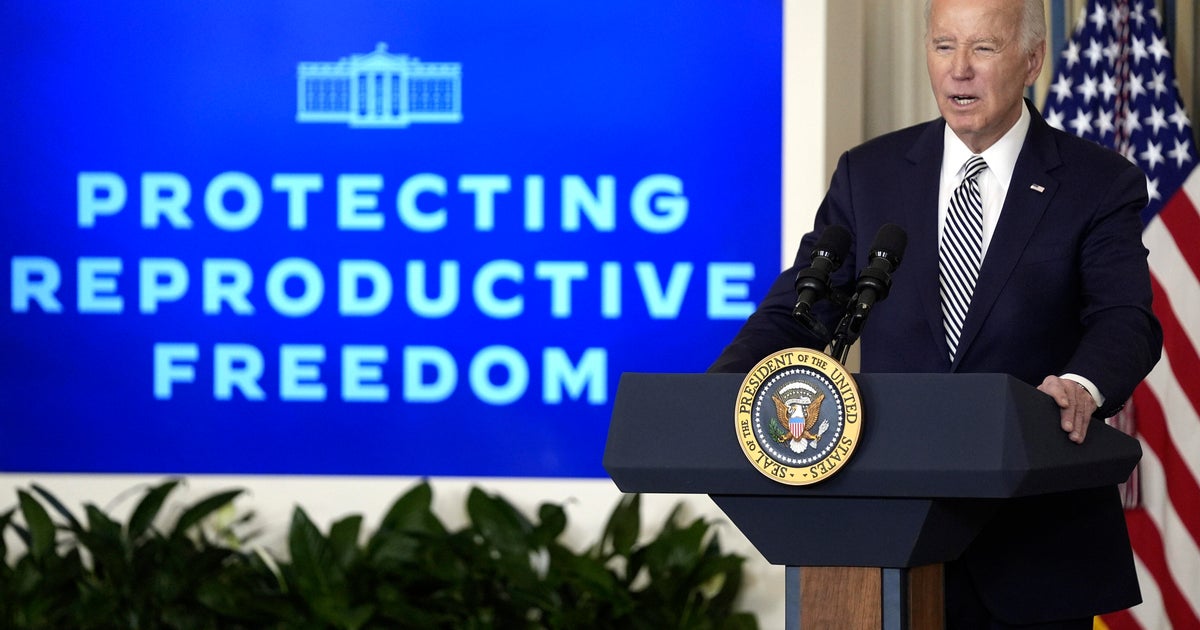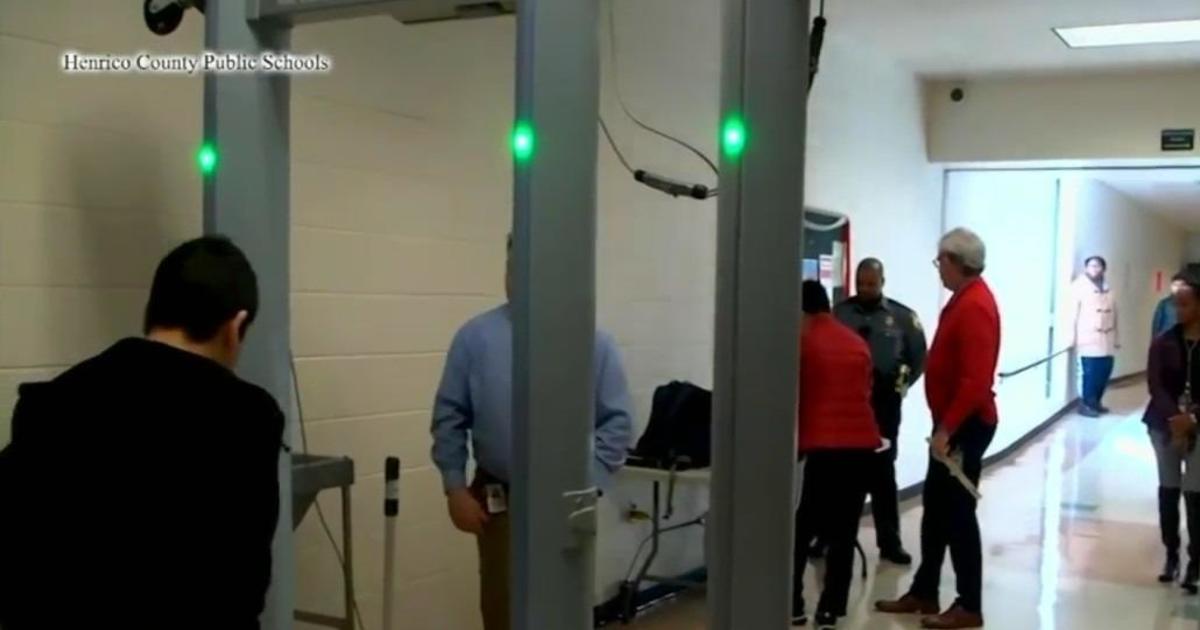Congress Takes Up Bill That Would Ban Assault Weapons
(CBSNews) – Democratic lawmakers were joined by mayors, law enforcement officials and gun violence victims Thursday to introduce the first significant piece of gun control legislation to be put to Congress since the massacre in Newtown, Conn., that left 20 children and six adults dead at an elementary school: The "Assault Weapons Ban of 2013," which would ban many so-called assault weapons as well as high-capacity ammunition magazines.
"Today we are introducing legislation that will help end the mass shootings that have devastated countless families and terrorized communities," said Sen. Dianne Feinstein, D-Calif., who said she is "incensed that our weak gun laws allow these mass killings to be carried out again, and again, and again in this country."
"And the last several years, the massacres were going on more and more," continued Rep. Carolyn McCarthy, whose husband was killed and son was injured in 1993 when a man opened fire on a commuter train. "And going through it, I kept saying, 'what's wrong with all of us? How many people have to be killed before we do something?'"
Among the lawmakers present were the two senators from Connecticut as well as members of the House representing Newtown and Aurora, Colo., where a mass shooting took place in a movie theater last July. Victims of gun violence came to the microphone one by one to discuss loved ones killed by gunfire and their experiences in mass shootings.
McCarthy, D-N.Y., said she has "watched the slaughter of so many people and I've met with so many victims over the years, and in Congress nobody wanted to touch the issue."
The bill would reinstate the 1994 assault weapons ban that lapsed in 2004, though with some tweaks: The 1994 ban, for example, defined an assault weapon as a gun that had two or more features or cosmetic accessories such as a pistol grip. The 2013 ban will limit those features to one, which Feinstein said would make it harder for assault weapons manufacturers to get around the law. The new bill would also not expire, as the 1994 bill did after 10 years.
Broadly, the legislation would prohibit 158 specifically named military-style firearms along with certain semiautomatic weapons; it would also outlaw ammunition magazines that accept more than 10 rounds. Americans would be able to keep affected weapons if the weapons were already in their possession when the bill was enacted, and exemptions would be made for specific hunting and sporting weapons, as well as antique or disabled weapons. (The new bill would require a background check for grandfathered weapons if they are sold or transferred.)
Ultimately, however, these details are not likely not to matter all that much. That's because there is little chance that the legislation will get through Congress.
Start with the Senate: Democrats control 55 out of 100 votes, and barring a more-significant-than-expected change to the filibuster rule, supporters of the gun control measure would need all of those votes -- plus five Republican votes -- to pass the bill. Those votes don't appear to be there. There is only one Republican in the Senate - Mark Kirk of Illinois - who supports an assault weapons ban. One Democrat, Sen. Joe Manchin of West Virginia, told the New York Times of an assault weapons ban this week, "I'm not there," and at least four other Democrats have declined to take a position. Senate Democratic Leader Harry Reid of Nevada has vacillated on even holding a vote on an assault weapons ban, presumably out of concern that the vote could damage vulnerable Democrats ahead of the 2014 election.
The odds are even worse in the GOP-led House, where only one Republican, Peter King of New York, has said he supports an assault weapons ban. That's fewer than the number of House Republicans who have raised the prospect of impeaching President Obama over his gun control efforts. (They are Steve Stockman and Louie Gohmert of Texas and Trey Radel of Florida.) House Speaker John Boehner, who could choose to simply not bring the bill up for a vote, said Tuesday that an assault weapons ban would give people "a false sense of security." In both chambers, the National Rifle Association has flexed its lobbying muscle in an effort to keep wavering pro-gun lawmakers from breaking ranks.
Mr. Obama called on Congress to pass the assault weapons and high-capacity magazine ban on Jan. 16, as well as a requirement for universal background checks for gun sales and other measures. Citing the horrific Newtown massacre one month earlier, the president said that "if there's even one thing we can do to reduce this violence, if there's even one life that can be saved, then we've got an obligation to try."
The White House opted not to send its own bill to Capitol Hill after Mr. Obama's announcement; it says it supports Feinstein's effort and has worked with her office in crafting the new version. Yet its hopes are likely pinned to what comes next: There are likely to be at least four pieces of major legislation introduced on gun control, according to a Democratic source, including a bill out of the Senate Judiciary Committee, which starts hearings on gun control next week. Reid seemed most optimistic about that measure, telling reporters, "It may not be everything everyone wants, but I hope it has stuff that is really important."
If a gun control measure is going to get through Congress, it would likely combine the most popular proposals of gun control advocates - including universal background checks, which is backed by more than nine out of 10 Americans according to CBS News/New York Times polling - with moves to improve mental health screenings, which has been the focus of some Republicans. (Those who are following the debate closely would consider a ban on high-capacity magazines, backed by 63 percent of Americans, perhaps the biggest possible victory for gun control advocates.) With more than half of Americans saying they support an assault weapons ban, however, backers of the bill introduced today aren't giving up.
"I thought for sure, after Virginia Tech, we would get something done," said McCarthy. "Aurora. But something happened in Newtown. The people of America said, 'How could this happen? How could this happen to our children?'"
She added that Americans should not listen to arguments that nothing can be done to save lives, stating that roughly 1,000 people have been killed guns since Newtown.
"I'm telling you it can be done," she said. "I'm telling you with all my heart it can be done."



